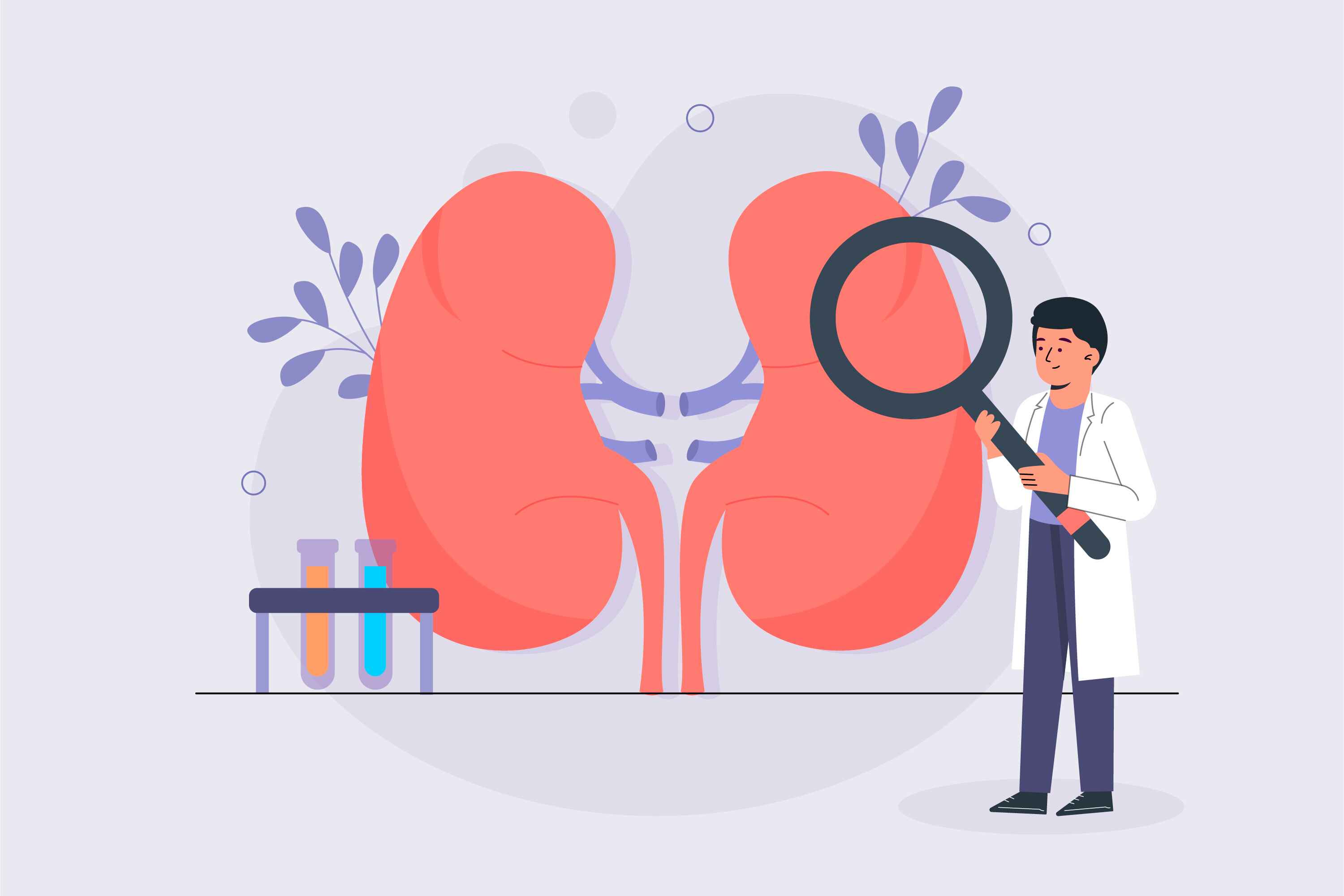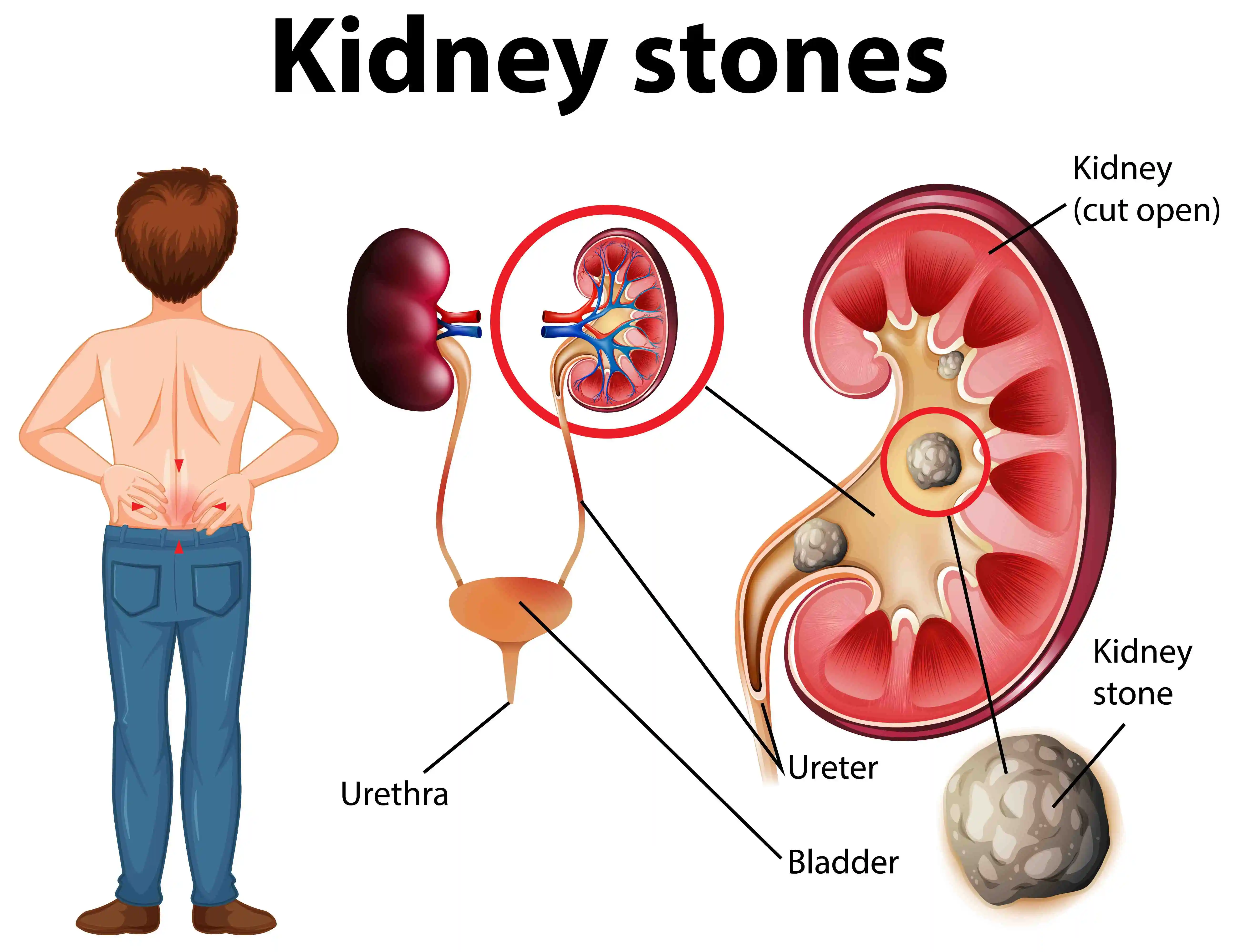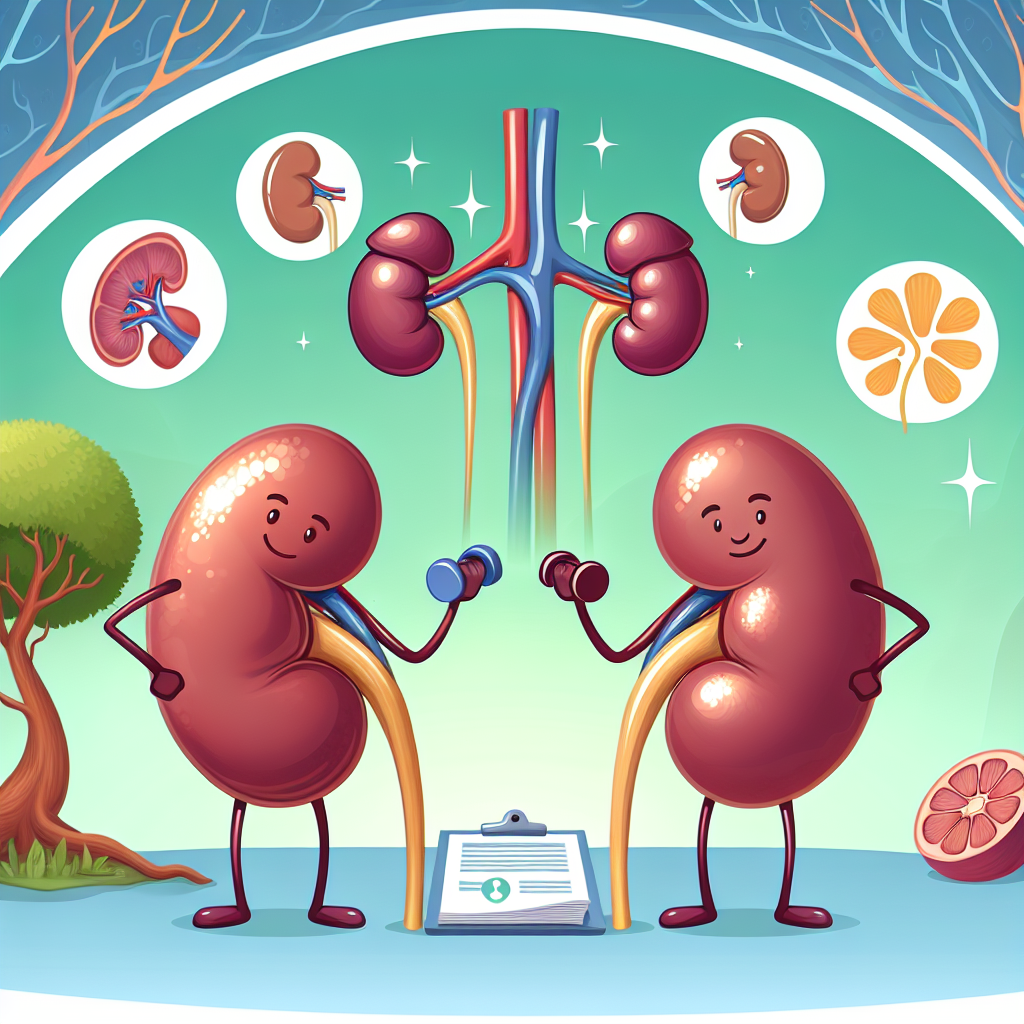In the quest for overall health and wellness, understanding how to improve kidney function is essential. The kidneys are vital organs that filter waste from your blood, regulate blood pressure, balance electrolytes, and perform other crucial tasks that impact everything from diabetes management to preventing kidney stones. With conditions such as high blood pressure and diabetes on the rise, safeguarding these organs is more essential than ever. This takes on added importance given the silent nature of kidney disease, which often progresses without symptoms until it's in an advanced stage.
This article offers a comprehensive guide on nurturing your kidneys to optimize their function and prevent common issues such as kidney stones and kidney disease. It begins by exploring the anatomy and vital functions of the kidneys, before delving into key lifestyle changes that can significantly impact your kidney health. You'll learn daily habits to adopt that support detoxification and efficient functioning of these organs. The discussion on nutrition zeroes in on superfoods to embrace and foods to avoid, providing a dietary roadmap not just for those looking to improve kidney function but also for people managing conditions like diabetes and high blood pressure.

Understanding Your Kidneys and Their Functions
Your kidneys are crucial for maintaining overall health, performing several vital functions that keep your body in balance. They are responsible for removing waste and toxins, excess water from the bloodstream, which is then excreted from the body in urine. Additionally, they play a significant role in hormone production necessary for producing red blood cells and converting vitamin D into its active form for the body's use.
Common Kidney Problems and Their Implications
Your kidneys help your whole body work efficiently. When they are not functioning properly, there is a higher chance of experiencing other health problems, also known as complications. Kidney disease means your kidneys are damaged and can't filter blood the way they should, leading to a buildup of wastes and fluid in the body. This condition can stem from various factors, including genetics, diabetes and high blood pressure.Age also plays a role, with the risk increasing as you get older. Detecting kidney disease early through simple tests can be life-saving, as it allows for timely intervention with medication and lifestyle changes, potentially preventing or delaying kidney failure.
Chronic kidney disease is often silent in its early stages, making it crucial to be aware of the risk factors and symptoms that may indicate its progression. Some common health problems caused by kidney disease include heart disease, high potassium levels due to the kidneys' inability to remove excess potassium from the blood, itchy skin.
Understanding the functions and potential issues associated with the kidneys is crucial for maintaining their health and preventing complications. Regular check-ups and being mindful of the symptoms can help in early detection and management of kidney disease, thereby safeguarding your overall health.

Key Lifestyle Changes for Healthy Kidneys
Importance of Regular Exercise
Regular exercise stands as a cornerstone in the prevention and management of kidney diseases, offering a multitude of benefits that extend beyond kidney health. It's established that engaging in physical activity can enhance overall wellness, improve physical function, and significantly reduce the risk of cardiovascular diseases, which are closely linked to kidney health. Specifically, exercise influences the body's systems by modifying blood flow and metabolism, thereby augmenting the body's efficiency in utilizing oxygen and increasing nutrient demands. Research highlights that consistent exercise can lead to improvements in the glomerular filtration rate, a key indicator of kidney function. Moreover, patients with kidney diseases can experience improved blood pressure control, better sleep quality, heightened physical function, and alleviation of anxiety and depression through regular exercise. It's recommended that moderate-intensity exercise, sustained over a period of at least six months and tailored to individual needs, can serve as an effective treatment for those undergoing kidney problem.
Managing Blood Pressure and Blood Sugar Levels
Maintaining optimal blood pressure and blood sugar levels is vital for individuals with kidney disease. High blood pressure, a leading cause of kidney disease, necessitates the heart to exert more effort in circulating blood, potentially causing damage to the kidneys over time. A diet, rich in fruits, vegetables, and low-fat dairy products, is advocated as a method to manage hypertension, heart disease, and kidney disease by limiting salt and fat intake. Regular monitoring of blood glucose levels is equally crucial for managing diabetes, a condition that can exacerbate kidney disease. Health care providers often recommend blood glucose testing multiple times a day to make informed decisions about food, physical activity, and medication. Achieving and maintaining blood glucose and blood pressure goals can significantly reduce the risk of further kidney damage and other complications.
Balanced Diet Considerations
A balanced diet plays a pivotal role in managing kidney disease and promoting overall health. it's important to consume foods that are gentle on the kidneys while limiting others to prevent the buildup of harmful minerals like potassium and phosphorus. A kidney-friendly eating plan includes fresh fruits, vegetables, whole grains, and low-fat dairy products, aiming to control intake of sodium, potassium, phosphorus, and fluids. Incorporating whole grains, nuts, fruits, and vegetables into the diet is essential for keeping kidneys healthy. Portion control is also a crucial aspect of a healthy diet, ensuring that the intake of even nutritious foods is balanced.

Daily Habits to Adopt for Kidney Health
Hydration: How much water should you drink?
Being "water wise" is essential for kidney health, which means understanding your personal hydration needs. Not everyone requires eight glasses of water a day; your needs can vary based on factors like age, climate, and physical activity. Water is crucial as it helps the kidneys remove wastes and deliver essential nutrients through your blood vessels. If you become dehydrated, it impedes this delivery system, potentially leading to kidney damage. It's important to drink enough to keep your urine light yellow or colorless, indicating proper hydration.
Quitting Smoking and Limiting Alcohol Intake
Smoking and excessive alcohol consumption can severely impact kidney health. Smoking is linked to renal disease and can negate the potential benefits of moderate alcohol consumption on kidney function. Alcohol increases blood pressure and can interfere with medications. It's advisable to limit alcohol to prevent conditions like high blood pressure, which is a major cause of kidney disease.
Nutrition Focus: Superfoods and Foods to Avoid
Superfoods that Support Kidney Health
Superfoods are not just a trend; they are essential for maintaining good kidney health, especially for those managing kidney disease. Foods like blueberries, strawberries, and apples are low in potassium and high in antioxidants, making them excellent choices for your diet. Fish, such as sea bass, provides high-quality protein and omega-3 fatty acids, which are beneficial for overall health and particularly supportive of kidney function.
Other beneficial foods include:
- Egg Whites: A superior source of protein without the phosphorus found in the yolk, making it ideal for kidney health.
- Olive Oil: Rich in healthy fats and free from phosphorus, it's a heart-healthy choice for cooking.
- Garlic and Onions: These offer a flavorful boost to dishes without adding harmful sodium, making them perfect for enhancing meals while protecting your kidneys.
- Red Grapes and Cranberries: These fruits are not only low in potassium but also provide antioxidants that support kidney and urinary tract health.
Foods and Substances Detrimental to Kidney Health
Managing your diet is crucial to avoid foods that can exacerbate kidney issues. High potassium fruits like bananas and oranges should be limited due to their adverse effects on kidney function. Similarly, potatoes and tomatoes are high in potassium, which can be harmful in excess for those with kidney disease.
Processed foods are significant sources of sodium and phosphorus, substances that those with kidney disease often need to limit. A diet high in processed foods can contribute to kidney damage and other health issues. Additionally, animal proteins can increase acid levels in the blood, potentially harming the kidneys over time.
Other foods to avoid or limit include:
- Avocados and Dried Fruits: These are generally healthy but contain high levels of potassium, which can be detrimental to kidney health.
- Dairy Products: High in phosphorus, these should be consumed in moderation or avoided depending on individual health recommendations.
- Sodas and Energy Drinks: These beverages are linked to an increased risk of chronic kidney disease and should be avoided to maintain kidney health.
By understanding which foods to embrace and which to avoid, you can effectively manage your kidney health and prevent further complications.
Conclusion
Throughout this exploration of kidney health, we have uncovered vital strategies to maintain optimal kidney function, emphasizing the importance of lifestyle modifications, nutritional adjustments, and the incorporation of kidney-supportive habits. The insight provided into the intersection of exercise, diet, hydration, and medication management forms a robust framework for protecting these essential organs. By understanding the anatomy, functions, and common issues associated with the kidneys, we equip ourselves with the knowledge necessary to preempt potential health problems and engage in preventive care, ultimately contributing to better overall health and well-being.
Echoing the discussions presented, it is clear that proactive management of blood pressure, blood sugar levels, and nutritional intake, alongside adopting healthy daily routines, stands as the cornerstone of kidney health. The implications of these actions extend far beyond kidney function, positively impacting cardiovascular health and reducing the risk of chronic diseases. As we strive for improved health outcomes, let this guide serve as a reminder of the power of informed, intentional lifestyle choices in preserving kidney health and enhancing the quality of life. Engaging with this knowledge actively and consulting healthcare professionals for personalized advice are critical steps toward achieving and maintaining optimal kidney function.
FAQs
1. What steps can I take to enhance and maintain my kidney function?
To care for your kidneys and improve their function, consider the following measures:
- Regularly get tested for kidney disease, especially since early stages might not show symptoms.
- Keep an eye on your blood pressure.
- Engage in regular physical activity.
- Manage your blood sugar levels.
- Eat a well-balanced diet.
- Ensure you stay hydrated.
- Quit smoking if you do.
2. What is the healthiest beverage for kidney health?
Water is the best choice for maintaining kidney health. It is recommended to drink water frequently throughout the day in small amounts.
4. Which foods are beneficial for restoring kidney function?
Several fruits are known to aid in kidney function recovery, including:
- Apples, which provide antioxidants, fiber, and vitamin C.
- Cherries, which are also antioxidant-rich.
- Pomegranates, beneficial for their nutrient density.
- Strawberries, which offer antioxidants and vitamin C.
- Tomatoes, good sources of vitamins and minerals.





